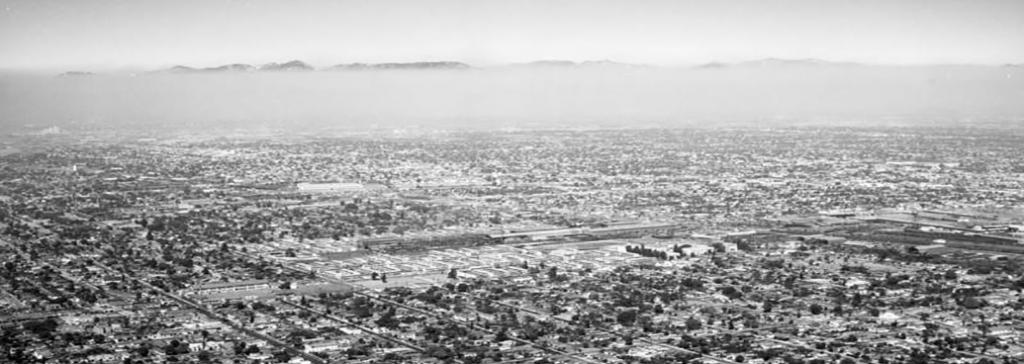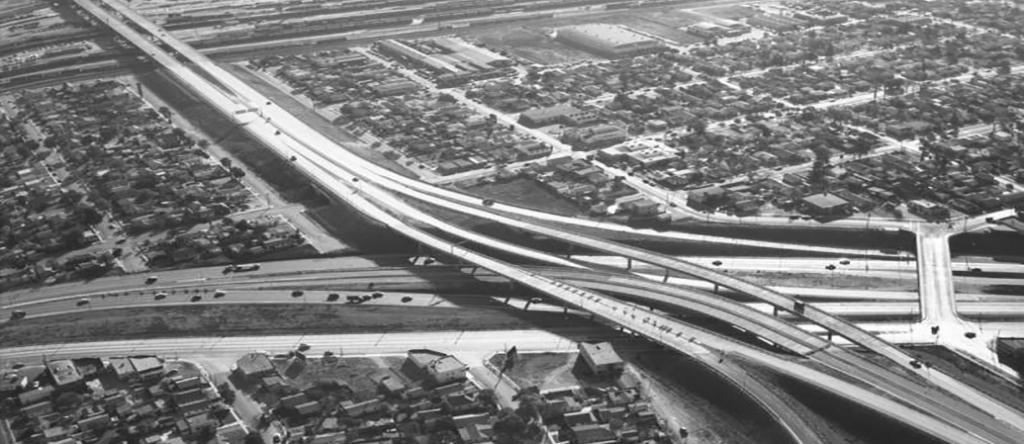
This June will mark two years since the Office of Racial Justice, Equity, and Transformative Planning was established with the goal of addressing the legacy of racism and segregation in Los Angeles’s past planning practices. To advance this mandate and commemorate Black History Month, let’s explore the topic of environmental racism, a historic land use issue that disproportionately negatively impacts Black and Brown urban communities.

Environmental racism stems from historic land use practices that concentrate sources of pollution such as freeways, manufacturing, and hazardous uses next to residential areas. LA’s historically Black and Brown neighborhoods—such as South, Southeast Los Angeles, and West Adams—continue to feel the effects of environmental racism today in the form of poor health outcomes and diminished quality of life. Numerous community based organizations are at the forefront of the environmental justice movement and are playing a critical role in organizing communities to advocate for more stringent and remedial environmental policies and regulations.
One of the tools that Planning staff developed in collaboration with neighborhoods and advocates to address environmental inequities in communities of color is the Community Plan Implementation Overlay (CPIO). Project planners use the CPIO alongside policy documents, such as Community Plans and the City’s General Plan, to implement citywide goals and neighborhood-specific objectives through a more environmentally-conscious lense. When used in historically Black and Brown communities, the CPIO can regulate polluting uses and other harmful everyday uses that detract from neighborhood quality of life, such as an overabundance of alcohol sales, fast food establishments, and public storage facilities.

Additionally, the Clean Up Green Up (CUGU) ordinance—which was adopted in Boyle Heights, Pacoima, and Wilmington—is another Overlay tool that regulates noxious uses near sensitive and residential uses in environmentally-impacted communities. The CUGU ordinance and CPIO are among a few tools that planners have to implement environmental justice policy through zoning use regulations.
The Office of Racial Justice, Equity, and Transformative Planning will facilitate workshops and listening sessions to confront and address the legacy of environmental racism in Los Angeles. The policies, goals, and objectives established through these community partnerships will be reflected in the Office’s Strategic Action Plan with the aim of creating an equitable and sustainable Los Angeles for all. Together, we are Planning4LA.